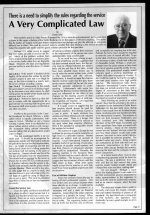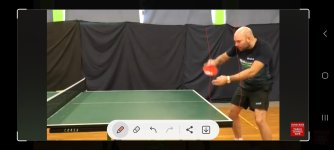During the world cup, many players were called for illegal serves, but mainly for tossing not vertically or inside the table. I did not see any called due to hidden serves.
I think there are several reasons for this.
1. The umpire can't see whether it is hidden serve well in his/her location and he/she does not want to be wrong.
2. The umpire needs to keep sharp eyes all the time to catch hidden serves.
3. Calling an illegal serve might cause complains from the servers/coaches during the play.
Overall, without eagle eye system, hidden serves will not be called that much and most players will learn to use it more often.
I think there are several reasons for this.
1. The umpire can't see whether it is hidden serve well in his/her location and he/she does not want to be wrong.
2. The umpire needs to keep sharp eyes all the time to catch hidden serves.
3. Calling an illegal serve might cause complains from the servers/coaches during the play.
Overall, without eagle eye system, hidden serves will not be called that much and most players will learn to use it more often.












